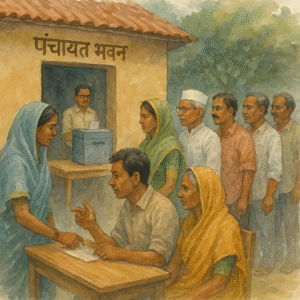Simplified Explanation of the Judgment
In this case, the Patna High Court dealt with a challenge brought by the Income Tax Department against a settlement order passed by the Income Tax Settlement Commission (ITSC) in 2008. The department sought to quash the Commission’s decision on the grounds that the Commission had admitted that it was “not practicable” to examine the records and investigate the case for proper settlement.
The assessees had filed applications under Chapter XIX-A of the Income Tax Act, 1961, which provides a mechanism for taxpayers to voluntarily disclose previously undisclosed income and settle their disputes with the tax department through the Settlement Commission. The disclosed amount in this case was significant—about ₹97.79 lakhs—almost 100 times more than what was originally declared in their returns.
The core issue was whether the Commission’s comment that it was not practicable to further investigate the matter could be grounds for setting aside the settlement, especially when the Revenue had participated in the process, raised no objection at the time, and accepted the money without protest.
The Court emphasized that the Settlement Commission is a quasi-judicial body comprising senior tax officers with integrity, expertise, and experience. It operates with the aim of bringing finality to tax disputes while balancing the interests of both the Revenue and the assessee.
The Court observed:
- The Revenue never alleged any misconduct by the Commission or that the assessees failed to provide truthful disclosures.
- The order was passed in the presence of Revenue officers, who raised no objection at the time.
- The petition challenging the settlement was filed over a year after the order, which defeats the object of speedy and conclusive settlement under Chapter XIX-A.
- The Commission had a statutory deadline to dispose of the case by 31 March 2008. The statement regarding impracticality of further investigation was merely contextual and did not imply procedural lapses.
Accordingly, the Court refused to interfere with the order, stating that a mere change in the opinion of Revenue officials cannot be the basis for undoing a lawful and concluded settlement.
Significance or Implication of the Judgment
This judgment is important for upholding the finality and sanctity of income tax settlements. It reinforces the principle that concluded settlements should not be reopened lightly, especially in the absence of procedural violations or fraud.
For the government, the ruling serves as a reminder to honor commitments made during quasi-judicial proceedings. For taxpayers, it provides confidence that settlements made in good faith under statutory schemes will be protected from arbitrary interference.
The decision also underlines the judiciary’s emphasis on reducing prolonged litigation and ensuring certainty in tax administration.
Legal Issue(s) Decided and the Court’s Decision with reasoning
- Can an income tax settlement be reopened based on a vague observation by the Settlement Commission?
- Court’s Decision: No.
- Reasoning: The observation was not indicative of any legal or procedural lapse. It merely acknowledged constraints faced by the Commission due to volume of cases and time limits. The Revenue had participated and accepted the outcome.
- Does delay in challenging a settlement weaken the Revenue’s case?
- Court’s Decision: Yes.
- Reasoning: The petition was filed over a year after the order was passed. Such delay goes against the objective of finality in settlement proceedings.
- Is the Commission’s discretionary power immune from challenge?
- Court’s Decision: Generally yes, if exercised within the framework of law.
- Reasoning: The Commission acted within its jurisdiction and followed the prescribed process. There was no violation of law or miscarriage of justice.
Judgments Referred by Parties (with citations)
- Ajmera Housing Corporation v. CIT, (2010) 8 SCC 739
- Union of India v. Star Television News Ltd., [2015] 373 ITR 528 (SC)
- CIT Central Jaipur v. M/s Anil Hastkala (P) Ltd., (2010) 329 ITR 41
- CIT v. Hari Kishan Vijayvergia, (2011) 336 ITR 174
Judgments Relied Upon or Cited by Court (with citations)
- Ritesh Tiwari v. State of U.P., (2010) 10 SCC 677
- Champalal Binani v. CIT, West Bengal, (1971) 3 SCC 20
- Chimajirao Shrike v. Oriental Fire & Gen. Ins. Co., (2000) 6 SCC 622
- LIC of India v. Asha Goel, (2001) 2 SCC 160
- State Financial Corporation v. Jagdamba Oil Mills, (2002) 3 SCC 496
- Chandra Singh v. State of Rajasthan, (2003) 6 SCC 545
- Punjab Roadways v. Punja Sahib Transport Co., (2010) 5 SCC 235
Case Title
Commissioner of Income Tax (Central) v. Income Tax Settlement Commission & Ors.
Case Number
Civil Writ Jurisdiction Case No. 10663 of 2009
Citation(s)
2021(1)PLJR 162
Coram and Names of Judges
Hon’ble The Chief Justice Sanjay Karol
Hon’ble Mr. Justice S. Kumar
Names of Advocates and who they appeared for
- Mrs. Archana Sinha – for the petitioners (Revenue)
- Mr. Ajay Kumar Rastogi – for the respondents
- Mr. S.D. Sanjay, Sr. Advocate – for the respondents
Link to Judgment
https://patnahighcourt.gov.in/viewjudgment/MTUjMTA2NjMjMjAwOSMxI04=-PBhvRJ1–am1–Qmk=
If you found this explanation helpful and wish to stay informed about how legal developments may affect your rights in Bihar, you may consider following Samvida Law Associates for more updates.








